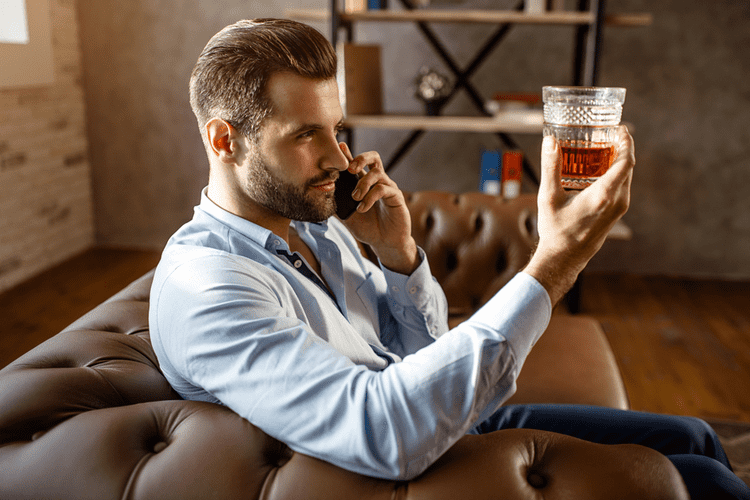This article will explore its risk factors, symptoms, diagnostic tests, medications, procedures, and home remedies to help manage the disorder. Circadian Rhythm DisruptionRegular or heavy alcohol consumption can also affect the body’s circadian rhythms, making it harder to fall asleep at the right times and stay asleep through the night. Disruption of Sleep ArchitectureAlcohol might make you feel sleepy and help you fall asleep initially, but it significantly disrupts the quality of sleep. It reduces the amount of time spent in REM (Rapid Eye Movement) sleep, which is crucial for feeling rested and for memory consolidation.
The Connection Between Alcohol and REM sleep
A healthcare professional can discuss available treatment options for alcohol use disorder and insomnia with you, including therapy, medications and lifestyle changes. Limiting alcohol—especially in the hours before bed—is just one part of maintaining healthy sleep. Building consistent habits that support your body’s natural sleep-wake cycle can help you fall asleep more easily and wake up feeling rested.
How to achieve better sleep and sleep quality without alcohol
This is when the body is actively detoxifying, resulting in restlessness and unstable sleep patterns. This period lasts about a week for most people, barring those with severe addiction. Sleep challenges can last for several weeks or months into the alcohol recovery timeline. It’s important to remember that this discomfort is does alcohol cause insomnia temporary, and that once this stage is over, your sleep quality will improve. With time, the body will heal and regain its natural ability to get restful sleep. Long-term recovery success often depends on developing and maintaining healthy sleep habits that support overall wellness.
Treatment Approaches at The Recovery Village Palmer Lake
In rehab for addiction or mental health, you’ll work with a team of experts. Search what is alcoholism our list of alcohol detox centers to find a program that matches your needs, and reach out directly today. Several evidence-based strategies can help you manage withdrawal symptoms, promote relaxation, and finally get to sleep.
While alcohol withdrawal insomnia can be one of the most frustrating aspects of early recovery, it’s important to remember that this condition is temporary and treatable. With proper medical support, lifestyle modifications, and patience, most people experience significant improvement in their sleep quality as their recovery progresses. Alcohol addiction treatment can be a difficult process, and one of the common symptoms of alcohol withdrawal is insomnia. Insomnia is difficulty falling or staying asleep, affecting over half of individuals undergoing alcohol withdrawal. Exploring how alcohol withdrawal causes insomnia can help individuals struggling with this issue.

Find Resources for Alcohol Treatment
When combined with counseling, this approach is proven highly effective. Excessive drinking has numerous impacts on your body and mind, ranging from mild to severe. Learn which signs to look out for, and how to care for your well-being. Combining alcohol with sedative medications can be dangerous or even fatal as it could lead to hypoventilation or not being able to breathe deeply at night. Our circadian rhythm is sometimes called our “biological clock”—the process that regulates the way our bodies function during each 24-hour daily cycle. There is a growing body of literature demonstrating a bidirectional relationship of insomnia with alcohol consumption and alcohol misuse.
- Alcohol withdrawal insomnia occurs because alcohol disrupts the brain and body’s natural balance, known as homeostasis.
- Alcohol relaxes throat muscles, worsening sleep apnea by increasing airway obstruction during sleep.
Managing Chronic Pain and Sleep: Helpful Tips for a Good Night’s Rest
- People with co-occurring medical conditions have an even higher risk of developing insomnia and/or substance use disorder.
- While some people find that drinking alcohol helps them fall asleep more easily, alcohol ultimately has a negative impact on sleep.
Sleep apnea can overall lower your quality of sleep and cause disruptions throughout the night. When drinking before bed, be mindful of the potential to develop symptoms of insomnia. This can become a habit that can create an unhealthy reliance on alcohol. If the brain can’t enter REM sleep, the recovery processes we undergo when we sleep can’t fully engage.

CBT-I has proven effective in treating chronic insomnia, teaching individuals to revise beliefs about sleep that aren’t helpful. By altering poor sleep behaviors and replacing them with healthier ones, people can improve sleep over time. Studies suggest that generally, insomnia symptoms are most challenging during the first few days of quitting.